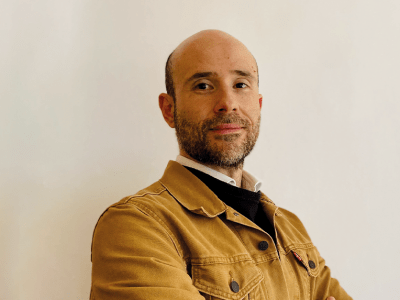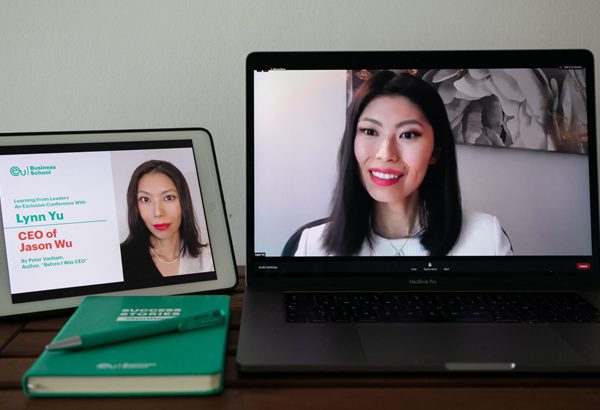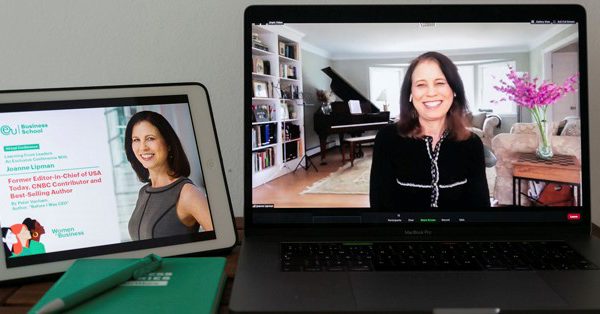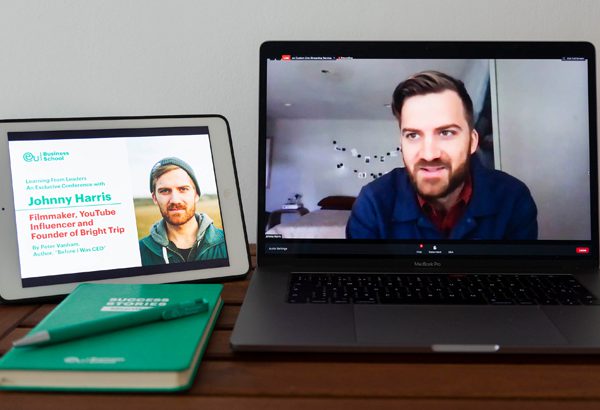Teresa Carles Healthy Foods’ CEO Jordi Barri
From açai bowls and cold-pressed juices to vegan burgers and gluten-free brownies, Barcelona is brimming with restaurants and cafes serving up healthy, plant-based fare. This hasn’t always been the case however. Rewind 10 years and the Catalan capital had next to nothing by way of health-focused eateries.
Enter Teresa Carles Healthy Foods, one of the city’s first vegetarian restaurants and a pioneering force on the city’s blossoming healthy food scene. Since opening its doors in the quirky El Raval neighborhood in 2011, the restaurant quickly made a name for itself thanks to its healthy yet tasting offerings, top-notch customer service and stylish decor. It did so well in fact that in 2014, co-owners Teresa Carles and her son Jordi Barri decided to open their second Barcelona establishment, Flax & Kale, this time focusing on flexitarian cuisine. Today, the Teresa Carles Healthy Foods brand has no less than five establishments around the city including Teresa’s Juicery, Flax & Kale Grab&Go in H&M and the newly-opened Flax & Kale Passage, which houses its very own kombucha laboratory.
At EU Barcelona, we were thrilled to welcome Jordi Barri, CEO of Teresa Carles Healthy Foods, onto campus for an interactive session with our students. The event got underway with an interview conducted by EU student Michelle Lopez. Afterwards, students had the chance to put their questions to Jordi in a dynamic Q&A Session.
From his heathy eating ethos to advice on setting up a business from scratch, Jordi had several pearls of wisdom to share with us.
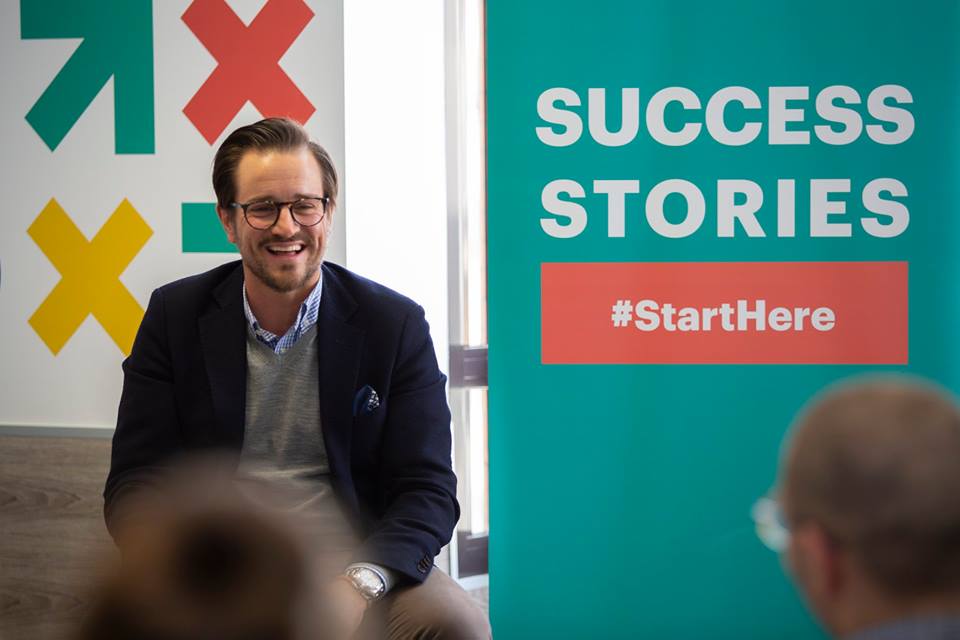

Could you tell us a bit about your business background?
My parents opened a vegetarian restaurant called El Paradís in our town, Lleida, in 1979. Although it was a big risk, it paid off and the business did very well. People often assume that I always planned to join the family business but actually this isn’t the case. After graduating with a degree in business management from Universitat Pompeu Fabra in 2001, I decided to take the corporate route and started working at KPMG. Although it wasn’t my passion, I stayed at the company for almost three years, learning as much as I could. I think the learning process is so important. My motto is “be like a sponge” – take everything in and surround yourself with talented people who you can learn from. It wasn’t until much later that I decided to get involved in the business.
What’s the recipe for success in the restaurant business?
I think it’s a combination of things including price-quality ratio, marketing, communications, interior design and location. First and foremost you need to have a good product. After you’ve got this, marketing strategy is key. I think social media is an amazing tool, particularly Instagram, for those in the restaurant business. You need to invest in a community manager and a photographer to really create engagement. Given my marketing background, I find this aspect very interesting, however operations and good customer service are equally important, even if they aren’t as exciting.
What gets people in the door and keeps them coming back?
I think it’s all about creating a strong brand that people feel connected to. Their first experience in your restaurant needs to be amazing so that they return, and they tell their friends. Word of mouth is huge in our industry.
What have been the biggest challenges along the way and how did you overcome them?
I would say our challenges have changed as we have evolved and expanded. When my parents opened their restaurant in Lleida back in the 70s, the biggest challenge was to get people to come to an establishment that doesn’t serve meat. Barely anyone in the town was vegetarian and people just didn’t understand it.
When we opened Teresa Carles in 2011, our PR plan was very important. We had to push the press to come and this was a challenge. They weren’t interested in coming to a vegetarian restaurant, they wanted to go to the top Michelin-starred restaurants where meat takes center-stage. Once we got them in the door and they got a feel for what we were doing, they realized that we had something really special. It all went from there.
Today, I would say one of our greatest challenges is finding and retaining the best staff. Our aim is to make people happy through our food. We’re not interested in employees who only care about profits and shareholders, we want people who care about what we’re doing. We’re always on the lookout for talented people who will be an asset to our team.
What qualities do you look for when hiring candidates?
When I interview people, I always ask them ‘why do you want to work here?’, ‘how will you make an impact?’ I’m looking for people who are passionate, who want to work hard, learn and grow. You need to show me that you’re capable and excited about working with us. Otherwise what’s the point?
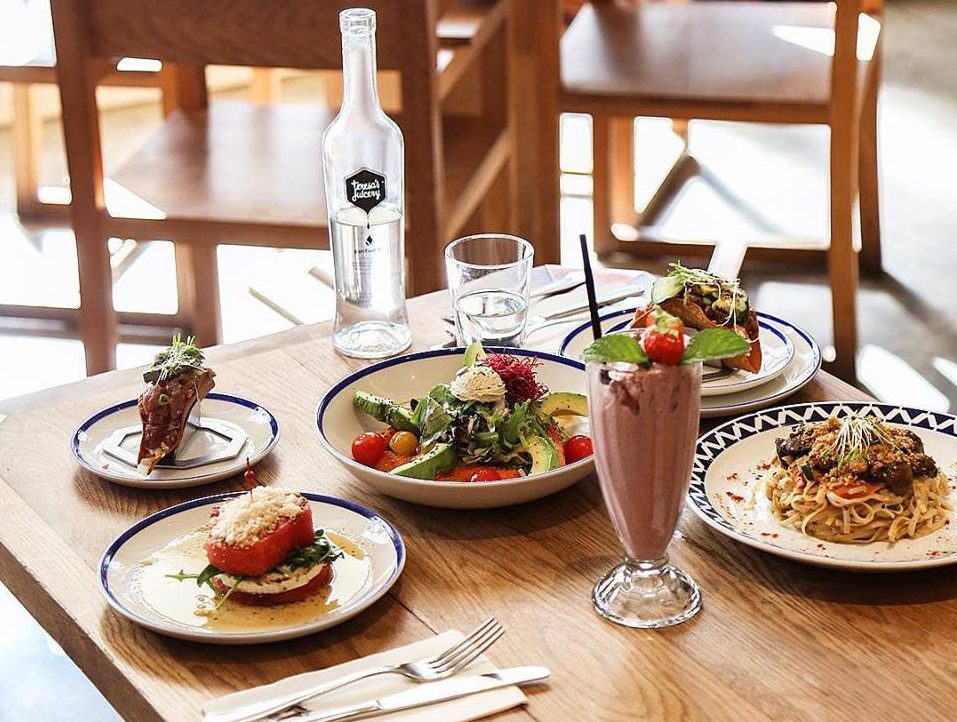

Your restaurants are very popular with meat-eaters. How do you make vegetarian food accessible?
At Teresa Carles, we don’t focus on being a ‘vegetarian restaurant’, our restaurants target everyone. It’s all about offering delicious, nutrient-dense dishes that satisfy everyone from the gluten-free vegan to the most devout carnivore. We make lots of meat substitutes using plant-based proteins. People don’t miss the meat because what they are eating is wholesome, delicious and packed full of flavor.
What do you love most about running your business?
I love working on product development. It’s the most innovative side of the business. I partly enjoy it so much because it involves a lot of traveling. You need to do extensive market research and see what exciting new products and ingredients are out there. At Teresa Carles, when we organize world tours, everyone in the team wants to come! For me, it’s one of the most motivating aspects.
I also enjoy analyzing the market to get a feel for current trends and see what people like. We take a popular product and think about how we can make a healthy alternative, whether it means swapping refined sugar for a natural sweetener or adding ground almonds instead of white flour. I find this process incredibly satisfying.
At the moment, we’re looking to diversify and move into the fast-moving healthy consumer goods market. We’d love to sell our products in supermarkets. We have a lot of exciting opportunities on the horizon at the moment, so stay tuned for them!
How important is it to have a good work/life balance?
Work/life balance is important, but when you’re running a family business and the money you invest is your own, you have to succeed. Failure simply isn’t an option. You have to be willing to work hard, particularly when you first start a business, and make the most of every opportunity. For a long time, I was working 24/7, 360 days a year. It’s only in recent years that I have been able to step back and enjoy some free time. Ultimately, you need to be truly passionate about what you’re doing. Only then will all the hard work be worth it.
Eating a more vegetarian, plant-based diet is more popular than ever today. Do you think we are witnessing a healthy revolution or is it just a fad?
I don’t think healthy eating is a fad, I think it’s here to stay. Nowadays people are more and more aware of the benefits of eating well. It’s not about dieting, it’s about maintaining a healthy lifestyle. We have lots of information available to us and as time goes on, I think we’ll keep learning more.
Are you a vegetarian?
No, I’m not vegetarian. I class myself as flexitarian, which means I eat a mainly vegetarian diet, with some oily fish and meat from time to time. Ultimately I eat as healthily as I can. I do this because it gives me energy and it makes me feel good. People often think it’s okay to eat junk food because they can’t see any physical effects but it all catches up with you eventually. Once you start eating well, you will see how much better you feel in yourself. For me, it’s all about eating fresh, whole foods.
Having said that, I try not to be too strict with my diet. I think it’s important to be flexible. If I go to a wedding or a special occasion, I’ll eat whatever I’m given. I’ll eat everything if someone has prepared it specially and with love. I don’t want to be “that guy” who requests a special menu!
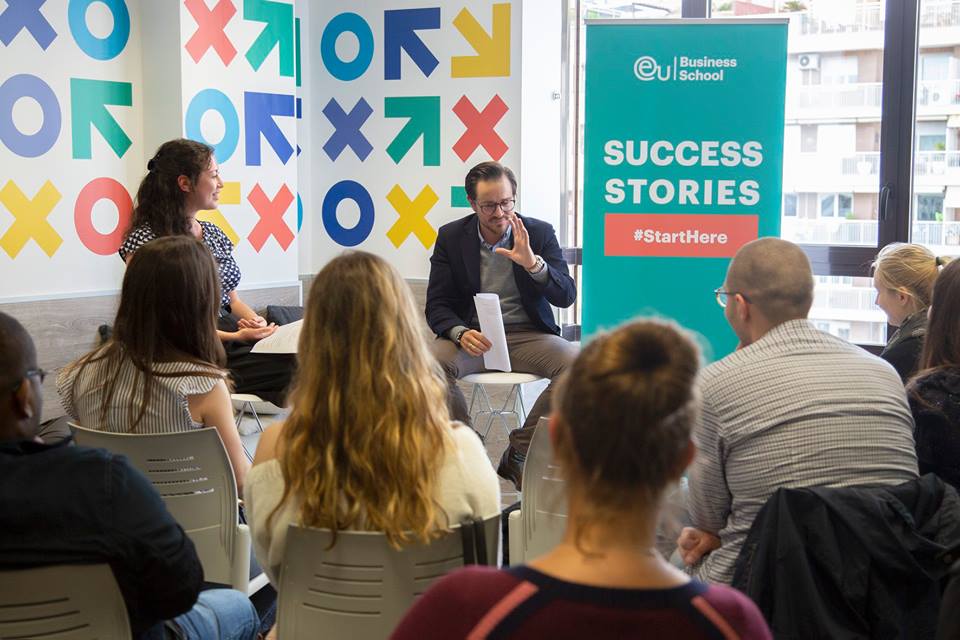

What advice would you give to someone who wants to start their own restaurant?
Don’t do it! It’s really tough! But jokes aside, if you want to setup a successful restaurant, you need to have a solid strategy. Start by analyzing the market, see what’s already out there. If you want to start a tapas restaurant in Barcelona for instance, there are already a lot out there. Ask yourself ‘am I going to be better than my competitors?’, ‘can I offer something different?’. You also need to think about operations. You need to maintain quality every single day, you need to change the menu now and again – you have to keep on top of everything. So analyze the market, make a business plan and then I wish you the very best of luck!

